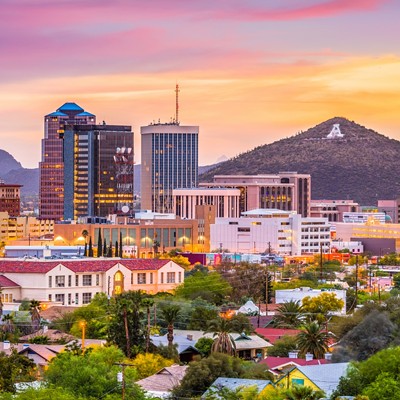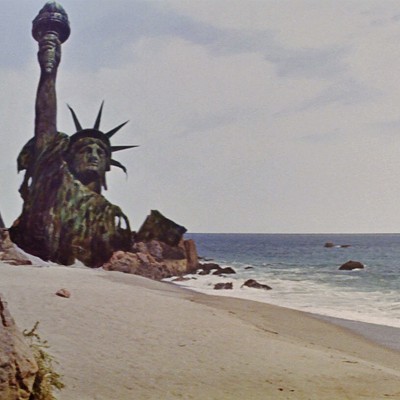· Tucsonans wake up one morning and discover the city is gone. Poof. Disappeared. Left for another dimension. The 5,000 inhabitants who remain behind find unpaved streets, a flowing Santa Cruz River and nothing but desert east of what is now Alvernon Way. And everyone is speaking Spanish. Neither the Internet nor television can shed any light on this phenomenon: There is no electricity. But the locals are friendly and are willing to direct the fearful, freaked-out palefaces to the nearest taverna, where a few remaining cold cervezas and directions for desert survival await.
· Starting from Tucson, the epicenter of a widening series of inexplicable events, the lights begin to flicker out across the globe. Candles become a very hot item. This is especially true for people whose eyes, nurtured on artificial light for several generations, have lost much of their capacity to adjust to darkness.
· With neither Internet nor television as a link to the outside world, people turn to their cell phones, only to discover their utter uselessness, since cells require electrical current to generate signals. Same with portable phones. Only corded phones are functioning, but only as long as the batteries hold out at the switching stations.
· Driven to uncover the mystery of what's happening, some folks take to their vehicles hoping the answer awaits over the hill or across the vale. They are shocked to discover their cars, trucks, SUVs, ATVs, motorcycles, tractors and all other fossil-fuel sucking modes of machinery are no longer working. Gone. Kaput. Bicycles become a very hot item.
· On the morning after the last electric light flickers out in a remote village located halfway around the globe from Tucson, the world's population discovers all money has mysteriously vanished. At the same time, all weaponry, from national stockpiles to personal gun collections, has turned into plowshares. Some are very big plowshares. Trade and negotiation become very hot items.
· Just as resignation is starting to replace panic, plastic objects begin to disappear. It starts with a few items; a cup here, a bowl there. Within a few days, the pace accelerates. By the time the vanishing ends, some households are almost empty.
· The planet's population plummets as more people join the missing Tucsonans. The angry, the vain, the haughty, the self-righteous, the cynical, the humorless and the pessimists just fade away, along with the generally obnoxious. Hope makes a comeback.
· Months pass, and the first spring blooms find Earth's diminished population struggling to come to terms with the new reality. One night, each of the planet's inhabitants experiences a custom-made dream. Some dream they are able to paint glorious images; others that they are skilled musicians; still others find themselves sculpting. The following morning, the dreamers discover tools for their imagined art at their bedside. People who have never been able to carry a tune find themselves able to make beautiful music. Those with no ability to draw and no knowledge of color are now able to execute magnificent paintings. Joy makes a comeback.
· Though people find themselves working harder--and in ways previously unimaginable--to provide for the necessities of life, they paradoxically discover more time to share with others. With all the diversions common to the 21st century gone, men, women and children have only each other (and their miraculous new skills) to rely on for entertainment when the workday ends. Games and storytelling quickly gain in popularity. And the lost art of conversation makes a comeback. Before too long, not a soul can be found who yearns for television, the Internet or celebrity news.
· As their food supplies dwindle, the last remaining city dwellers leave their urban centers for the countryside. There they are welcomed by those in established communities who introduce them to a new way of life. They struggle at first; their muscles are flabby and unaccustomed to real labor. But over time, they too experience the joy that springs from meaningful work.
· Years later, the old cities gradually erode to be reclaimed by a forest of green. The sky, for the first time in generations in some places, is once more the clearest shade of blue. The air is clean. Rivers flow freely. And Earth makes her comeback.






